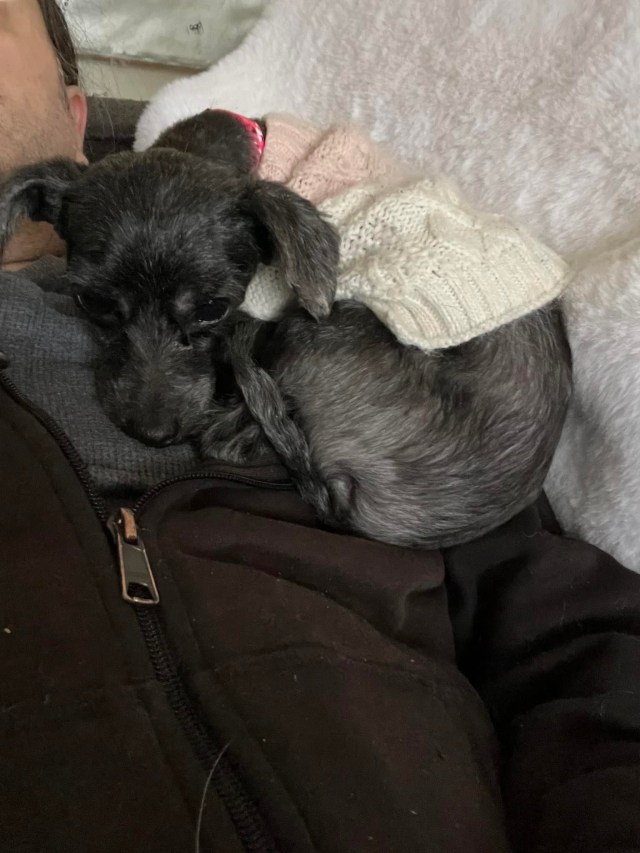Pixie, a 4-year-old 5.5-pound toy poodle, was relinquished to the Wyandotte Animal Shelter on March 19 by her owner, a decorated veteran of the Vietnam War. Regrettably, she was surrendered due to her owner’s health issues, which made it challenging for him to continue caring for her.
This scenario is a common occurrence leading pets to find their way into shelters.
Thomas Abraham, the director of Pound Pals Downriver, mentioned that Pixie’s previous owner ultimately made the difficult decision to surrender her.
“The owner appeared to be struggling to care for himself. He noticed that Pixie’s condition was deteriorating. Feeling ashamed and unable to take her to a groomer, he contacted the shelter through a trusted acquaintance who advised him that surrendering Pixie was the best course of action,” he explained. “Right from the beginning, Pixie displayed a friendly and loving demeanor.”
Pixie’s fur was severely tangled and excessively long, causing her distress when handled.
“Her nails had pierced through the tangled fur, obstructing her vision due to the excessive fur around her face,” Abraham described.
Through a collaboration between Downriver Grooming Co. and Pound Pals Downriver, volunteers were able to have Pixie groomed on the same day and examined by a veterinarian within three days. She was diagnosed with a UTI infection, which was promptly treated with antibiotics.
“After the removal of the tangled fur,” Abraham noted, “she still exhibited flinching reactions when hands approached her face, expecting the pain caused by the fur pulling on her skin.”
In just a week after her arrival, Pixie found a new home. She was adopted by a family with experience in caring for neglected pets. Severe matting, like what Pixie endured, can be quite painful to the touch. Therefore, the shelter ensured that her new family understood how to provide Pixie with the affection she craved, despite the discomfort she had previously endured.
Abraham shared positive news about Pixie’s current well-being: “She is now a sweet and affectionate dog.”
Pound Pals Downriver, a nonprofit organization, collaborates closely with the Wyandotte Animal Shelter and Downriver Central Animal Control.
“Our objective is to facilitate the adoption of animals by providing them with necessary medical attention,” Abraham emphasized.
Acknowledging the increasing cost of pet care, Abraham highlighted the availability of assistance. Local food banks sometimes offer resources for both individuals and their pets.
He addressed a common misconception that seeking help would lead to surrendering the pet, clarifying that this is not always the case.
“Most local rescues prioritize keeping pets with their owners,” he reassured.
Abraham encouraged individuals not to hesitate to reach out to their local shelters, as they can connect them with rescues that will collaborate to ensure the pet receives optimal care.
Despite the ongoing challenge of high euthanasia rates in animal shelters nationwide, there has been progress. The percentage of no-kill shelters in the U.S. has doubled from 24% to 52% between 2016 and 2021. Additionally, the percentage of animals euthanized in shelters has decreased by 77% since 2016, largely due to the presence of no-kill shelters, as reported by Veterinarians.org.
While donations to shelters play a significant role in preventing pet euthanasia, Abraham suggested alternative ways to contribute if financial support is not feasible. These include attending fundraisers, assisting neighbors who are struggling with pet care, volunteering at local shelters, and fostering animals for nearby rescues.
